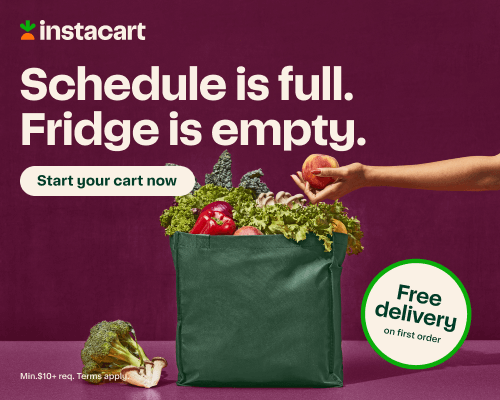Grocery Guides
Baby Carrots – All You Need to Know | Instacart Guide to Fresh Produce

What are baby carrots?
While you may not have put that much time and effort into thinking about baby carrots, the story behind them may surprise some people. While there are baby carrots—AKA carrots that have been plucked from the ground before reaching their final stage in maturity—the baby carrots most people picture are the smooth, short, little carrots you find in a pre-packaged bag.
These bite-sized baby carrots are regular carrots that have been cut down to the size and shape we all know and love. By turning misshapen carrots and resizing and reshaping them, we now have access to baby carrots at nearly every grocery store.
Where did baby carrots originate from?
Baby carrots don’t have your typical vegetable origin story. In fact, baby carrots did not necessarily originate from a place, but more so, from a person. In the early 1980s, California carrot farmer, Mike Yurosek, had grown tired of not being able to sell carrots that were misshapen, not up to sizing standards, or just plain “ugly.” He decided to take these unwanted carrots and used an industrial bean cutter to cut the carrots into smaller pieces and rounded out the uneven texture. What resulted were smooth, convenient-sized carrots that are now available everywhere.
What is the nutritional value of baby carrots?
One serving of baby carrots provides a whopping 250% of your Daily Value (DV) of vitamin A. Vitamin A is most notable for its antioxidant properties that help with eye health and your immune system. The vitamin C found in baby carrots also helps with strengthening the immune system and is often used to help fight off colds. There are moderate amounts of fiber in baby carrots. Fiber, as most people know, aids in healthy digestion.
While most people are aware that baby carrots, and carrots in general, help with optical health, eating baby carrots can also strengthen your oral health. Because of the crunchy, fibrous texture of baby carrots, chewing them acts as a form of brushing and can help remove plaque buildup from your tooth enamel.
Are baby carrots naturally grown?
While most vegetables have a simple answer as to how they are grown, baby carrots have a slightly more complex history.
The baby carrots that you see packaged in convenient bulk baggies are actually referred to as “baby cuts” in the industry. Most often, these baby-cut carrots are created from regular carrots and are not technically grown naturally. Shop popular baby carrots.
However, some carrots are specifically bred and planted to be smaller in size. These carrots are planted closer in proximity in order to create carrots smaller in width. They are also picked before they reach their mature stage to ensure a smaller length.
However, if you are not shopping for the pre-packaged baby-cut carrots, you can also find baby carrots—carrots that have been harvested and picked before they reach their mature stage and size. While very confusing, because both variants often go by the name of “baby carrots,” you can usually decipher which is which by appearance. Baby-cut carrots are packaged in bags and baby carrots will often be displayed like normal carrots and can have the foliage attached to the top of the carrot. You may find the latter at a specialty grocery store or a farmer’s market.
When are baby carrots in season?
Although they are typically found in stores year-round, baby carrots do have peak seasons. Carrots are often harvested during their peak seasons in the late spring and fall.
How to store baby carrots
If you see condensation or notice that the carrots are a bit damp in their packaging, do not be alarmed. Baby carrots are often packaged with a small amount of water to prevent them from drying out. With that being said, the best way to store baby carrots is at a cooler temperature with higher humidity. You can also try keeping your carrots in water or wrapped in a damp paper towel to keep them fresher longer. In your produce drawer, baby carrots should last 3-4 weeks.
How to tell if baby carrots are bad
Because baby carrots are technically ‘cut’ when you receive them, they are kept in slightly damp packaging to ensure they keep their freshness. When a baby carrot has developed a white cast around it, also known as a ‘blush,’ the carrot is dehydrated. You can rehydrate your carrots by soaking them in water and scrubbing off the white cast. However, they should be eaten according to their expiration date.
It should be noted that although baby carrots require some moisture to prevent them from drying out, too much moisture for a prolonged amount of time may eventually lead to spoiling. If your baby carrots have started to turn soft, they have started to spoil. If you notice any mold, mushy or slimy texture, or a foul odor, toss the baby carrots immediately.
How to shop for baby carrots
When shopping for baby carrots, inspect the bag to ensure none of the carrots have molded. Also, check that the carrots do not have dark spots or a soft texture. Baby carrots should be smooth in appearance, orange, and firm to the touch.
If you are looking to have your groceries conveniently delivered, you can easily shop for baby carrots and more via the Instacart app. After adding a product to your cart, use the “Instructions” option to notify your Instacart shopper about any preferences or specific directions on how to choose the best products.
Most Recent in Grocery Guides

Grocery Guides
15 Best Cheeses for Your Next Charcuterie Board
Let’s face it: The heyday of the store-bought party platter is long gone. Now, the duties of a good host often include curating an impressive charcuterie board. But where do you begin? Charcuterie boards typically…
Jan 21, 2025
Grocery Guides
Guide to Movie Night Snack Delivery
Planning the perfect movie night means getting cozy, choosing a favorite film and gathering all the right treats. With movie night snack delivery, you can skip the hassle of a grocery run and have delicious…
Dec 19, 2024
Grocery Guides
9 Best Cheese for Pasta: Melting, Grating & More Explained
The right cheese can elevate your pasta instantly, but choosing the best cheese for pasta can be tricky with so many options. Whether you’re aiming for a creamy, melty finish or a sharp, savory kick…
Dec 19, 2024
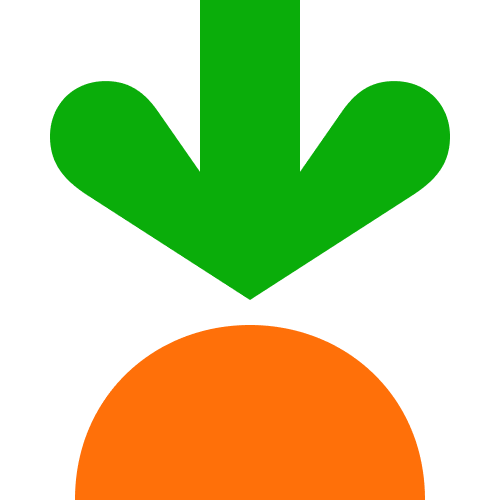
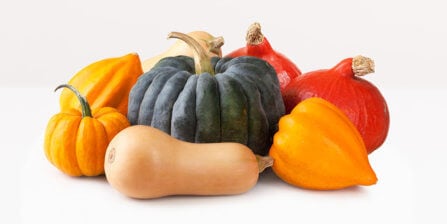 Squash – All You Need to Know | Instacart Guide to Fresh Produce
Squash – All You Need to Know | Instacart Guide to Fresh Produce 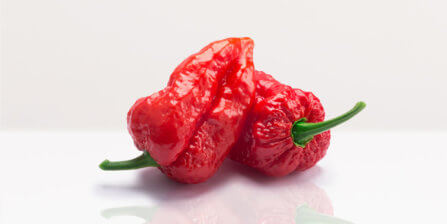 Ghost Pepper – All You Need to Know | Instacart Guide to Fresh Produce
Ghost Pepper – All You Need to Know | Instacart Guide to Fresh Produce 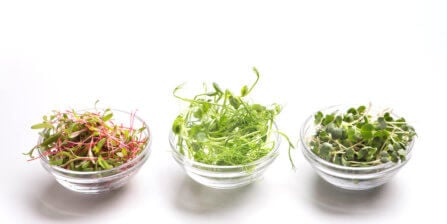 Sprouts – All You Need to Know | Instacart Guide to Fresh Produce
Sprouts – All You Need to Know | Instacart Guide to Fresh Produce 

